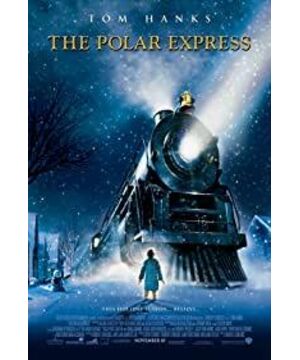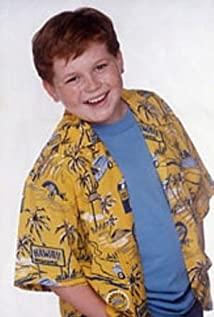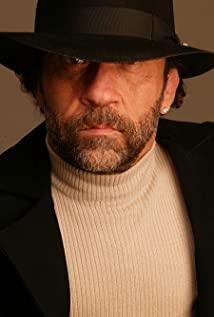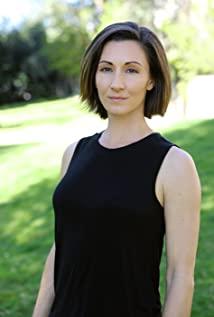In the fantasy world, Santa Claus exists
In the world of science, Santa Claus doesn't exist, at least the reindeer defying gravity. Anti-Newton's Law
In the real world, the Christmas teacher exists as a spiritual symbol as well as a commercial image.
In the art world, Santa Claus is just throwing ideas, sparking imagination, describing beauty, advancing literature, advancing art
There's no way to say in a word that the Christmas teacher exists or doesn't exist
Because of belief, there is. Because of the flow of emotion, belief has emotional value.
The world is so big, maybe fantasy, science, reality, art are not enough to explain
What kind of existence is "existence"?
What is the philosophical study of existence?
The Polar Express is a description of the Christmas spirit, an exploration of whether Santa Claus exists. The film's value orientation is: because it believes, it exists. Because you don't believe it, it doesn't exist.
Where the attention is, so Santa is. Believe it or not, Santa Claus exists. Murphy's Law also illustrates this.
Where attention is not. Fantasy things (Santa, ghosts, elves, etc.) also have no soil to live in.
Being and appearing to be, being and being noticed. This also seems to be an important branch.
JK Rowling mentioned the importance of fantasy in his graduation speech at Harvard in 2008. Perhaps feel some power in the relationship between existence and imagination:
Unlike any other creature on this planet, human beings can learn and understand, without having experienced. They can think themselves into other people's places. They can empathize with others and put themselves in their shoes to understand others.
Of course, this is a power, like my brand of fictional magic, that is morally neutral. One might use such an ability to manipulate, or control, just as much as to understand or sympathise. As in my fictional wizarding world, it is morally neutral. One may use this ability to manipulate control, and one may choose to learn about empathy.
I might be tempted to envy people who can live that way, except that I do not think they have any fewer nightmares than I do. Choosing to live in narrow spaces can lead to a form of mental agoraphobia, and that brings its own terrors. I think the wilfully unimaginative see more monsters. They are often more afraid. I might be tempted to be jealous of people who live like that. But I don't think they have fewer nightmares than I do. Choosing to live in a cramped space can lead to a fear of facing the open world and create a sense of fear in yourself. I think people who don't want to expand their imaginations see more monsters, and they tend to feel more scared. What is more, those who choose not to empathise may enable real monsters. For without ever committing an act of outright evil ourselves, we collude with it, through our own apathy. Activate real monsters. For though we have not committed sin ourselves, we collude with it through indifference. And many prefer not to exercise their imaginations at all. They choose to remain comfortably within the bounds of their own experience, never troubling to wonder how it would feel to have been born other than they are. They can refuse to hear screams or to peer inside cages; they can close their minds and hearts to any suffering that does not touch them personally; they can refuse to know. And many people choose not to use their imaginations. They choose to stay in their comfortable world and never bother to think about what would have happened if they were born elsewhere. They can refuse to listen to other people's screams and take a look at the cage; they can close their hearts and refuse to understand as long as the pain doesn't touch the individual.
One of the many things I learned at the end of that Classics corridor down which I ventured at the age of 18, in search of something I could not then define, was this, written by the Greek author Plutarch: What we achieve inwardly will change outer reality. One of the many things I started to learn from the classics at the age of 18, one of which I didn't fully understand at the time, was what the Greek writer Plutarch said: what we gain within will change the outer reality. That is an astonishing statement and yet proven a thousand times every day of our lives. It expresses, in part, our inescapable connection with the outside world, the fact that we touch other people's lives simply by existing. That is an astonishing statement, It's proven countless times every day we live. It indicates that we have an inseparable connection to the outside world, that we touch the lives of others with our own existence.
If you choose to use your status and influence to raise your voice on behalf of those who have no voice; if you choose to identify not only with the powerful, but with the powerless; if you retain the ability to imagine yourself into the lives of those who do not have your advantages, then it will not only be your proud families who celebrate your existence, but thousands and millions of people whose reality you have helped to change. We do not need magic to transform the world, we carry all the power we need inside ourselves already: we have the power to imagine better. If you choose to use your position and influence to give a voice to those who have no voice; if you choose not only to be in the company of the strong, but also to be sympathetic and supportive Weak; if you will put yourself in the shoes of those who are not as good as you, then your existence will not only be the pride of your family, but also the pride of countless thousands of people whose lives have been changed because of your help. We don't need world-changing magic, we have that power within ourselves: that we've been dreaming about making the world a better place.
View more about The Polar Express reviews











